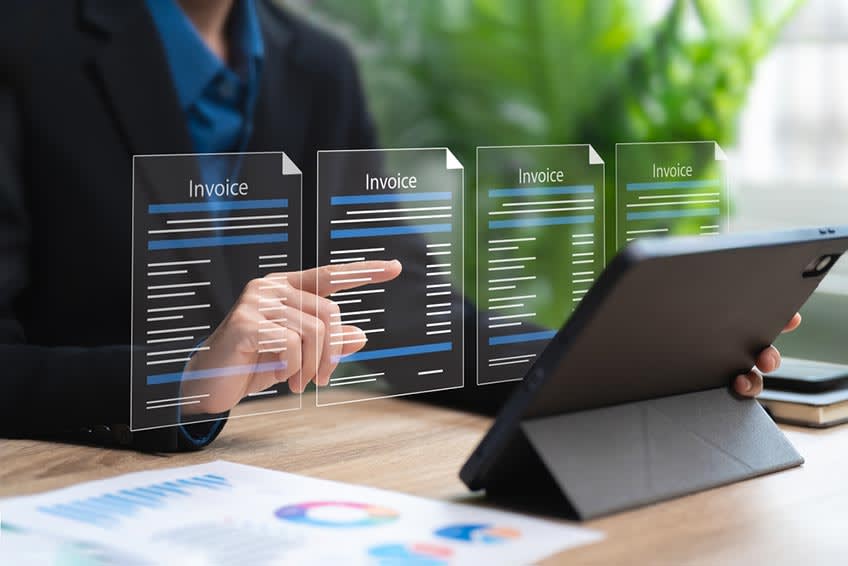
Many accounting executives seek efficiency in their finance and accounting departments by utilizing tools and resources that lighten the workload. However, CFOs, Controllers, and the like are hesitant to make the jump towards automation because for years, the accounting function has been primarily a manual job. And according to recent data, 80% of transactional accounting work can be automated. In fact, payment automation alone can save your company over 500 hours of work each year. Read on to explore some of the top accounting automation pitfalls and what tasks you should and shouldn’t automate.
If you’re thinking of investing in accounting software that automates your tasks for you, it’s easy to believe the hype that automation will solve all your accounting problems. But is it true? Sure, automation will alleviate the burden of completing some of your low-impact tasks and it frees up extra time in your day to focus on big picture items. But what about the work that the robots can’t do? And how does human capital fit in when taking on an automation overhaul project?
Key Takeaways
-
While automation handles data entry, it cannot replace the strategic analysis and interpretation provided by skilled accountants.
-
One of the major accounting automation pitfalls is the need for constant updates and training, which can burden teams without a dedicated IT department.
-
Relying heavily on cloud-based automation increases exposure to cyber threats, making robust security protocols more critical than ever.
-
If automation feels too rigid or risky, outsourced accounting offers a middle ground—delivering efficiency and expertise without the technical overhead.
Table of Contents
-
Lack of Trained Professionals and Maintenance Difficulty
As an accounting professional, you probably graduated from school with a degree that correlates to finance and accounting. You did not graduate with a degree in computer science, but the role of an accountant is expanding. Most employers now have a checklist of required skills they are looking for in their next hire – and at the top of that list is being able to utilize and successfully operate accounting automation software.
In addition to being unfamiliar with accounting technology, accountants are now having to add another thing to their work plate: training. Accounting automation software still requires team members to use it in order for it to be efficient. And no matter how simple the software is to operate, there will always be restrictions that hinder its effectiveness – inexperienced employees and outdated technology. In fact, training your team on the program is rendered useless if you haven’t upgraded your software to the latest version.
And then there’s the "integration headache". Accounting automation tools need to speak fluently with your existing ERP, CRM, and bank feeds. Often, these connections break or require complex custom coding to work correctly. If your new automation tool doesn't sync perfectly with your legacy systems, your team will end up doing more manual work just to fix the data transfer errors – defeating the purpose of automation in the first place.
If you have a dedicated IT department, thank them. It’s a challenge having to juggle a myriad of issues – add in a new software to maintain and heads will start spinning. However, if you work for a small to mid-size company that does not have an IT department, those issues will fall on your plate (on top of your other job responsibilities).
-
Accounting Automation = Lack of Human Interaction
As humans, we crave interaction – it’s embedded in our biological foundation. Technology can never truly replace a person. And as we previously mentioned in our blog post People + Technology: Why Humans Still Matter in the Age of Automation, the driving force behind tech is a living, breathing person.
An accountant’s role has evolved over time. What was once considered just number crunching has now moved towards a more strategic role – analyzing and interpreting data – something automation can’t do. You can’t teach a machine to interpret data in a meaningful way. In fact, automation can’t tell you what to do next; it can only tell you if the data is good or bad based on the criteria you set forth. In fact, according to Alanna Klassen Jamjoum, Director of Digital Transformation at A.T. Kearney, “In a future where we are increasingly surrounded by AI, we will crave human interaction even more.”
Read More: The Automation Era: Will Accounting Teams Become Obsolete?
-
Accounting Automation Leads to More Security Risks
Businesses have become increasingly reliant on technology and digital processes. We can order food for delivery through a mobile app; we can buy a car online; we can deposit checks via our bank’s mobile app – and now, we can automate the most basic accounting functions without lifting a finger. The U.S. Chamber of Commerce estimates that 95% of small businesses use at least one technology platform. But with these new advances comes additional security risks. In fact, as stated by the FBI, there was a 33% increase in losses in internet crime between 2023 and 2024.
Reliance on software and technology can leave accounting professionals vulnerable. With more accounting data being stored in the cloud, there are greater opportunities for hackers to expose that financial data and use it to their advantage. And while this doesn’t mean you shouldn’t get on the cloud (you definitely should), it simply means that security becomes an even more important priority when using accounting automation.
-
Lack of (or Too Many) Features
The evolution of automation has transformed from the Visicalc in 1978 to what we now know as automation: cloud-based systems. And although utilizing this technology seems like an easy way to eliminate low-impact tasks, it also presents a problem: how to address errors. Accuracy is vital in the accounting department. Automation is not fail-proof – it can’t correct itself.
If you pick an accounting automation based on cost alone or just because it’s the latest and greatest, you’re doing your team a disservice. Your accounting software needs to match the needs of your business. If the software you choose doesn’t allow for automation of invoicing or expenses, are you really getting your time and money’s worth? Probably not.
Your needs may differ from those of other organizations in terms of automation. Choose a technology based on your company's size, number of transactions, what type of work you need the most help with, etc. Look at whether the technology might be too robust or lacking in features based on how you will actually use it every day.
Not sure where to start? We wrote a whole blog about it. We Ranked the Best ERPs for Small Business (So You Don’t Have To).
-
Static Rules vs. AI Learning: Common Accounting Automation Pitfalls

Traditional automation processes are rigid. They use predefined rules to streamline repetitive tasks. On the contrary, AI learns and adapts to your business processes in real-time. One con of automation is that it is quickly becoming outdated compared to the advantages that AI offers. Complex tasks that require judgment or learning should be passed off to AI.
For example, some accounting software now has built-in AI protocols that automatically categorize transactions based on the description, even if the vendor isn’t in your system. These programs pull data on the description and assign an account that most closely relates. While automation an pull in your bank transactions, AI can take it a step further and categorize them.
How Much of Your Accounting Should You Automate?

We’ve looked at a few of the pitfalls of using accounting automation, and now it’s time to turn our attention to what we should automate.
-
Automate Payroll to Ensure Accuracy
If you’ve ever missed payroll, you’ll understand why this task needs to be automated. Not only is it a tedious task that’s time-consuming, but you’re also dealing with somebody’s lifeline.
-
Streamline Expense Management and Receipts
Keeping a drawer full of every receipt isn’t practical. What happens when you’re out sick or on vacation – who will have access to that drawer? By automating this task, you’ll never have to second-guess where you put that receipt.
-
Accelerate Cash Flow with Automated Invoicing
If you want to get paid faster, automate your invoicing. Automating this process allows you to prepare and deliver invoices in real-time without having to rely on the good ‘ole postal service.
The Solution: Accounting Outsourcing Eliminates the Issues Present With Automation
There’s no right or wrong answer to whether or not automation is beneficial for your company. Automation is great for eliminating low-impact tasks, but it doesn’t negate the fact that accountants are still needed to man those tasks. An alternative solution is to outsource your accounting tasks and remove the need for automation altogether, thus saving you time and money.
At Personiv, we’re dedicated to creating a tailored outsourced solution designed to fit your needs. If you want to save money, we’re here. If you want to get time back in your day, we’re here. If you want to avoid having to use accounting automation because it doesn’t align with your business needs, we’re here.
Get in touch with one of our experts to explore how we can help you avoid these accounting automation pitfalls and adopt the perfect virtual accounting solution.
Frequently Asked Questions






















